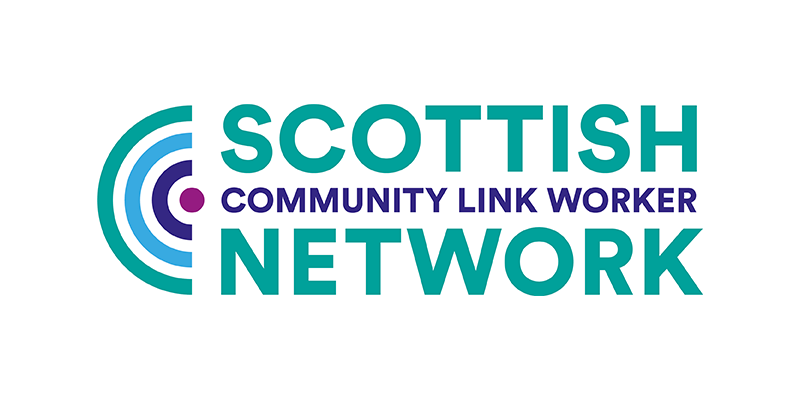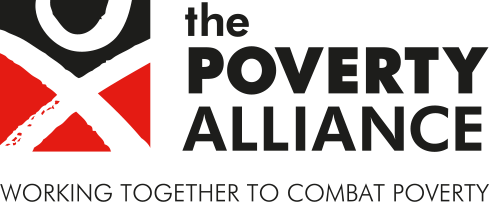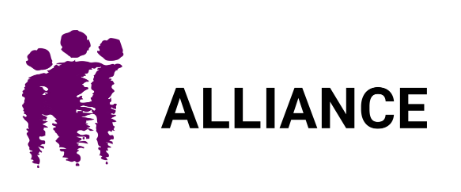People we work with
Community health is a wide-ranging and busy sector, with lots of different regional and national organisations involved.
We work with other networks, organisations and groups across the country to support and promote a community development approach to health and wellbeing at all levels. Check out the list below for organisations who may be useful and relevant to your practice.
And do get in touch with us if you would like to link up with us and get involved!
Voluntary Health Scotland
VHS are a movement for health creation working to reduce health inequalities to enable the people of Scotland to live well. They believe that health is more than the absence of illness, and together with their members and partners, they champion this belief. VHS collaborate to provide the national voice for third sector health organisations in Scotland.
Scottish Community Link Worker Network
The Scottish Community Link Worker Network is a national network for primary care community link working in Scotland.
The aim of the network is to create a space for community link workers in primary care settings in Scotland to come together to share learning and to develop, network and support each other in order to improve outcomes for their patients and communities.
Poverty Alliance
Poverty Alliance is Scotland’s anti-poverty network. They bring together campaigners and communities to rebalance the distribution of power and resources. The Poverty Alliance aim to:
Influence policy and practice
Support communities to challenge poverty
Build the anti poverty movement
Change attitudes
Provide evidence through research
YouthLink Scotland
YouthLink Scotland are the national agency for youth work and the collective voice of the sector. They champion and advocate for the youth work sector so that all young people can access high-quality youth work. Their membership of voluntary and statutory youth work organisations and intermediaries, including every local authority, spans all of Scotland.
Befriending Networks
Befriending Networks support and connect befriending services across the globe, providing sector-specific training, events, resources and awards that support quality in befriending.
Their vision is of a society where quality befriending support is available to everyone who needs it and the importance of meaningful connection is recognised. A variety of befriending services belong to the network, including projects which offer face-to-face, telephone, group or online befriending.
Find out more
Volunteer Scotland
Volunteer Scotland are the national centre for volunteering, working to create a nation of volunteers. Volunteer Scotland and their members are working to ensure that volunteering is accessible to all and is a safe, rewarding and fulfilling experience.
They lead the Volunteering Action Plan (VAP) on behalf of the Scottish Government, which aims to increase volunteer participation across the country and address the challenges and opportunities in the changing policy and practice landscape.
Scottish Communities for Health & Wellbeing
Scottish Communities for Health and Wellbeing are an alliance of community-led health organisations dedicated to promoting and delivering health improvements and reducing health inequalities in Scotland’s communities.
The network consists of nearly 80 community-led organisations, which operate and deliver services and activities to over 300,000 people. These services support those who are experiencing serious health and wellbeing challenges and who want to bring about major improvements to their lives.
Find out more
Learning Link Scotland
Learning Link Scotland support, promote, represent and develop third sector adult learning in Scotland. Their vision, is for strong, independent and vibrant third sector adult learning that supports lifelong learning, social inclusion, and democratic aspirations.
They work with partners to provide quality learning opportunities to a diverse range of individuals and communities and ensure that third sector and community adult learning is at the heart of decision making and forefront of service delivery in Scotland.
Find out more
The ALLIANCE
The Health and Social Care Alliance Scotland (the ALLIANCE) is the national third sector membership organisation for the health and social care sector. They have over 3,500 people and organisations as members, who are working together to improve the wellbeing of people and communities across Scotland by supporting change in health, social care and other public services.
The ALLIANCE has three core aims:
Empower people with lived experience: we ensure disabled people, people with long term conditions, and unpaid carers are heard and that their needs remain at the heart of the services and communities
Support positive change: we work within communities to promote co-production, self management, human rights, and independent living
Champion the third sector: we work with, support and encourage co-operation between the third sector and health and social care organisations.
Edinburgh Community Health Forum
Established over 20 years ago, the Edinburgh Community Health Forum is a membership organisation and registered SCIO, and its primary aim is to be a voice and network for organisations who work to reduce health inequalities and improve long-term health outcomes in Edinburgh.
The forum supports members by providing opportunities to meet, exchange best practice and information and to learn together. They also engage with and respond to local and national policies, strategies and consultations and work in partnership at strategic levels to reduce health inequalities.
Find out more
Meeting Centres Scotland
Meeting Centres are community-based centres that provide a range of services and activities tailored to the needs and interests of individuals with dementia and support for their families and care partners. The centres foster a sense of belonging and community, helping individuals with dementia maintain social connections and reduce feelings of isolation.
Meeting Centres Scotland supports the establishment, growth, and sustainability of dementia Meeting Centres throughout Scotland and is a central hub for resources, guidance, and collaboration.
Glasgow Life
Glasgow Life delivers cultural, sporting and physical activities and programmes across the city. These experiences are for the benefit of everyone and many of them are free. Arts, festivals, music, museums, libraries, learning opportunities, sports and community-based work are just some of the resources to draw on.
The charity has strategic commitments to advance culture and sport in the city, improve the mental and physical wellbeing of local communities and support the city’s visitor economy.
Scottish Intercollegiate Guidelines Network
The Scottish Intercollegiate Guidelines Network (SIGN) aims to improve care in Scotland by developing evidence-based clinical practice guidelines. These guidelines help health and social care professionals make decisions about patient care, ensuring practices are up-to-date, effective and aligned with the latest research and evidence.
Public involvement is central to SIGN's process. SIGN actively engages patients, carers, and their representatives through workshops, focus groups, and surveys. Incorporating the perspectives of people with lived experience and collaborating with third sector organisations and charities ensures the guidelines are relevant to the needs of people in Scotland.
TSI Scotland Network
The TSI Scotland Network is a body of expert charities that support, develop and advocate for the third sector and social enterprise and that also make it easier for people to volunteer with a focus on inclusion. There are 32 Third Sector Interfaces – or TSIs – across Scotland; one in each local authority area.
The network acts collectively to share best practice, gather information on the third sector and shape collective responses on key issues. This work is carried out to inform and influence policy and decision makers in Government, and activity and partnerships with local authorities and other public bodies.














